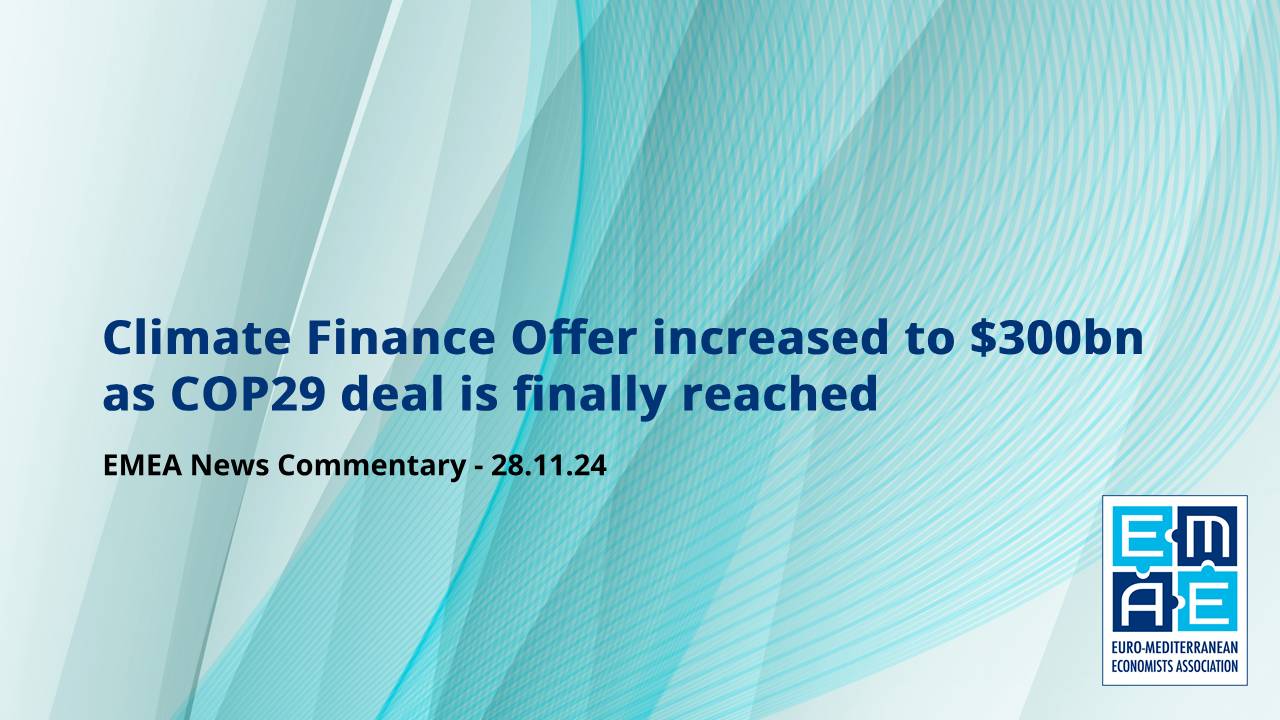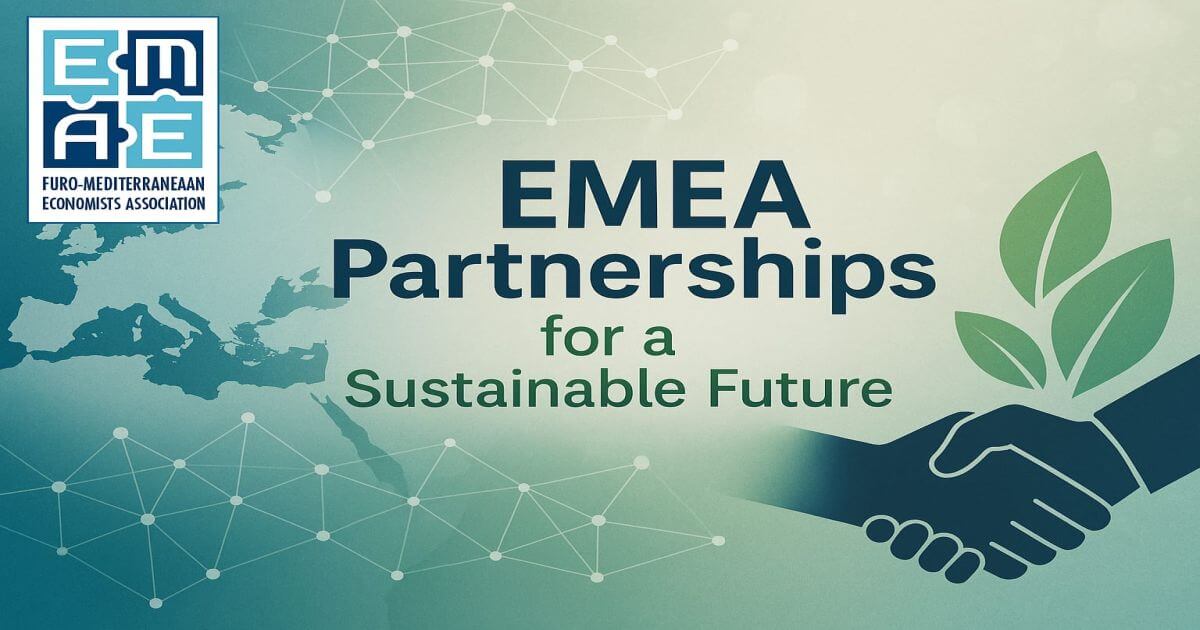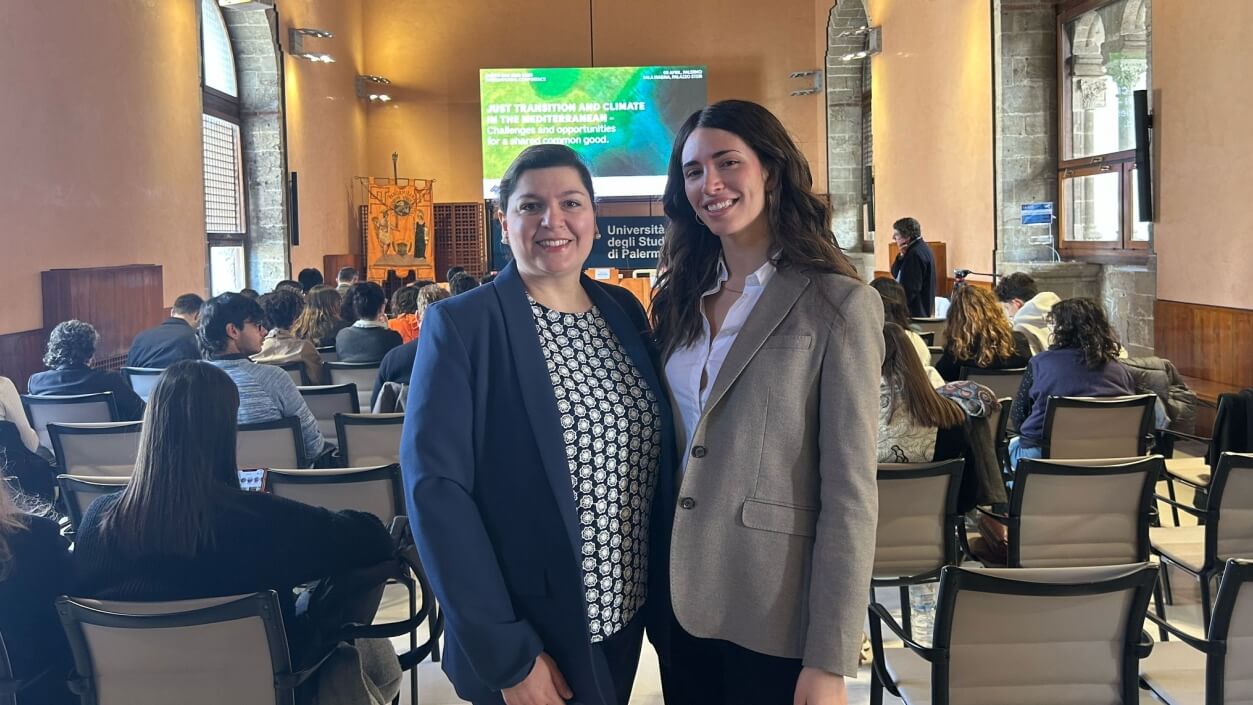After much wrangling, the amount that wealthy countries are prepared to pay to developing nations in their fight against the climate crisis has been increased to $300bn, the Guardian has reported from the COP29 Summit.
The Azerbaijan-hosted conference went into overtime in a bid to strike a deal, following the earlier rejection of $250bn per annum from 2030.
The newspaper reported that the Azeri hosts had brokered a lengthy closed-door meeting with a select number of ministers and delegation heads, including China, the EU, Saudi Arabia, Brazil, the UK, US and Australia. The discussions centred on the controversial sticking points around the level of climate crisis funding and transitioning away from fossil fuels.
The last-minute diplomacy followed anger amongst developing world representatives, who had dismissed the $250bn climate finance target as a joke, said the paper. Japan, Switzerland and New Zealand were quoted as being countries resistant to upping the amount by $50bn to $300bn.
The UN secretary general, António Guterres, had become involved in a frantic round of phone calls, urging nations to increase the offer.
Even so, the Guardian reported that $300bn “would still fall well short of what developing countries say is necessary.”
The thinking behind several ministers who were representing rich nations at the summit, was that it would be better to strike a short-term deal, rather than next year, when Donald Trump is back in the White House and other right-leaning Governments may take power in countries such as Germany and Canada.
Nevertheless, Claudio Angelo, from Observatório do Clima in Brazil, said rich countries had “clearly arrived to ditch their obligations,” adding that $300bn in grant funding was “way, way below” the figure that developing countries needed.
“Remember, many of them are already in deep debt,” he said. “To have climate finance as the current text proposes will only entrap those countries more.”
In keeping with pre-conference demands, the original draft text had noted that $1.3tn in external finance should be made available annually to poorer countries by 2035, in order to combat climate impacts.
But the Global South was pushing for more of the funding to come in the form of grants, as opposed to market-based loans, which are known to deepen debt burdens. The grant-over-loan debate has long been a point of contention.
Inner and outer layers of investment
Developing nations had not only complained that the $250bn figure was well-short of their requirements but it also contained few safeguards as to how the finance would be allocated.
The Guardian reported that the developed countries’ offer was meant “to form the inner core of a layered financial settlement” together with “a middle layer of new forms of finance, including new taxes on fossil fuels and high-carbon activities, carbon trading and innovative forms of finance.”
This would be embellished with an outer layer of private sector investment, to be used for projects like solar and windfarms – amounting to an overall figure of $1.3tn. Despite this, many activists have been calling for payments of between $5tn and $7tn a year, based on the belief that rich countries bear the historic responsibility for creating the climate crisis.
The report also said that the Azerbaijan Presidency had attempted to negate a key COP29 commitment surrounding the transition from fossil fuels, which had “sparked fury” from countries deeply committed “to moving away from the use of coal, oil and gas in favour of renewable energy.”
Fractious and hostile negotiations
Meanwhile, Bloomberg reported that COP29 had concluded after a “bitter fight”, which had led to a climate finance deal, of sorts, being agreed.
The news outlet said the two-week summit had seen “fractious and at times openly hostile negotiations”, which had produced “an agreement that even its supporters may see as insufficient and disappointing.”
Bloomberg predicted that the machinations of global climate cooperation would “lurch forward from here under the weight of heavier existential questions.”
Global temperatures are now at what is seen as a critical tipping point of 1.5˚C, beyond which climate campaigners believe the world will experience “the most catastrophic consequences of climate change.”
Many believe the 1.5˚C limit will be breached. Juan Carlos Monterrey-Gomez, Panama’s special representative for climate change goal said a last-ditch agreement at Baku had kept the multilateral system alive, adding: “But I think 1.5 is dead.”
Resistance amongst richer nations to reach a compromise deal was largely due to “a slew of fiscal and political constraints.” These included rising inflation, shrinking budgets and a tide of rising populism. Added to this, Donald Trump’s threat to extricate the United States from the Paris climate agreement had “cast a shadow on the summit.”
Raising the original $250 billion offer by $50bn would be achieved through various sources including public finance, as well as bilateral and multilateral deals, Bloomberg reported.
The Baku agreement would also help shape the commitments of individual countries in their efforts to reduce greenhouse gas emissions by 2035. And it would provide a steer for the next round of UN climate talks in Brazil.
But according to Bloomberg, the smaller-than-expected funding commitment would hamper the transition of developing countries to emission-free energy. It would also “constrain their ambition in setting carbon-reducing targets” which are expected in February 2005.
In addition to the extra funding, developed nations vowed that any agreement would be contingent on reaffirming last year’s COP28 outcome in Dubai that included a pledge to transition away from fossil fuels.
Saudi Arabia had led a protest by a bloc of Arab nations that no single sector should be singled out. Bloomberg reported that developed countries had finally agreed to the reaffirmation of last year’s COP28 deal, “without explicitly referencing fossil fuels by name.”
A Betrayal of the World’s Most Vulnerable
Following the deal announcement, the LDC Group on Climate Change who represent the world’s 45 Least Developed Countries, issued a statement saying they were “outraged and deeply hurt by the outcome of COP29.”
The LDC said the countries who had mainly caused the climate crisis had failed the developing world. “We leave Baku without an ambitious climate finance goal, without concrete plans to limit global temperature rise to 1.5°C and without the comprehensive support desperately needed for adaptation and loss and damage. This is not just a failure; it is a betrayal.”
And they added: “This outcome is a travesty. It sacrifices the needs of the world’s poorest and most vulnerable to protect the narrow interests of those who created this crisis. It prioritises profits and convenience over survival and justice.”
COP29 Latest: Group Ends With Deal on Climate Finance After Bitter Fight – Bloomberg
COP29: A Staggering Betrayal of the World’s Most Vulnerable – LDC Climate Change





